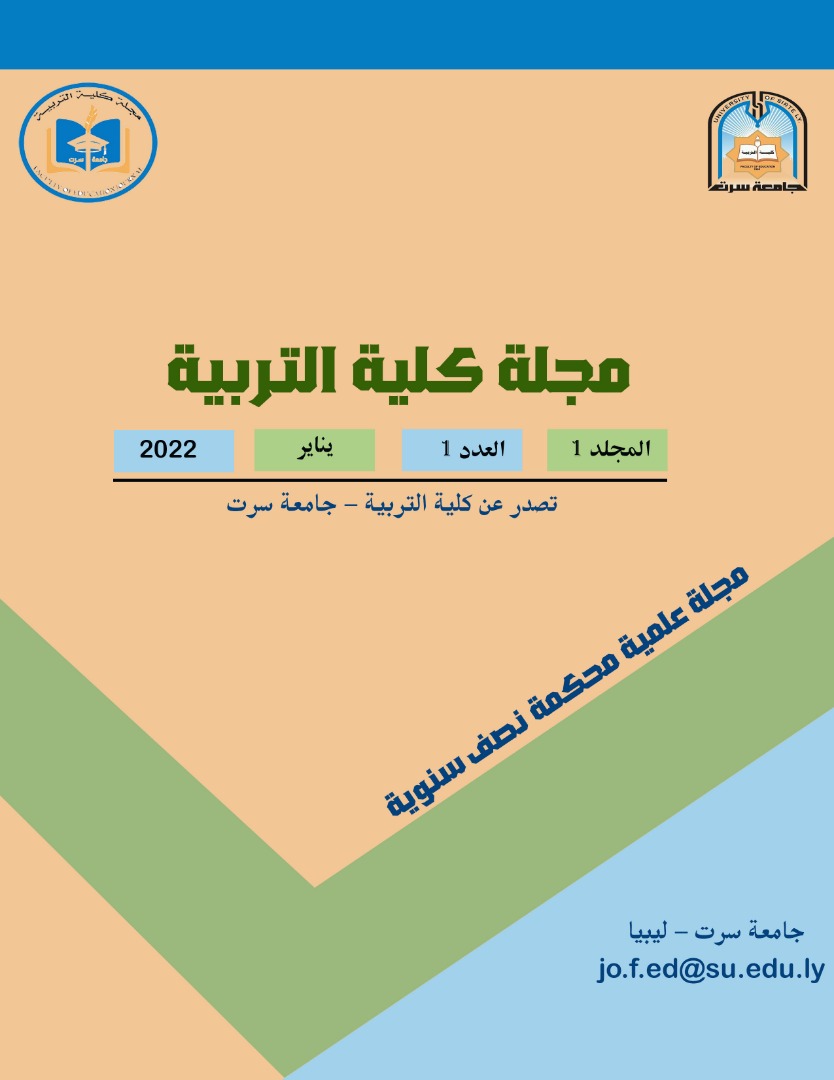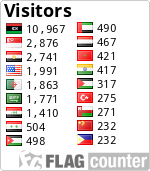Cognitive Styles and their Effect on Learning Processes: A Study of One Learner
DOI:
https://doi.org/10.37375/foej.v1i1.575الكلمات المفتاحية:
Key words: Cognitive style, Second Language Acquisition, Analytic, Wholistالملخص
A considerable number of research has been conducted into the area of individual differences in second language acquisition in order to understand the psychology of the learners and investigate the effect of these variables on language learning. Some of these variables are language aptitude, personality, motivation, learning strategies and learning styles. The main aim of this paper is to investigate one of the individual variables and attempts to explore the effects of this variable on learning procedures of a single language learner of English. The variable which is under investigation is cognitive style. A quantitative and a qualitative research method were employed to collect the data for this study. The results showed that the participant is a wholist learner where she prefers to look for the general picture in order to understand and complete the learning task in hand. This tendency, however, appears to be true with receptive skills only (i.e. listening and reading). On the other hand, the participant seems to change her preferred style (i.e. be more analytic) to finish the tasks that relate to productive skills (i.e. speaking and writing). Some pedagogical recommendations were proposed at the end of this article such as the application of multimodal approach in classroom is widely recommended to maximize students' potential and achieve the desired teaching effect by combining their learning styles and teaching tasks.
المراجع
Dörnyei, Z. (2005). The Psychology of the Language Learner: Individual Differences in Second Language Acquisition. Mahwah, NJ: Erlbaum.
Dörnyei, Z., Skehan, P. (2003). Individual Differences in Second Language Learning. In Doughty, C.J. & Long, M. H. (ed.). The Handbook of Second Language Acquisition. Malden, MA: Blackwell, pp. 589-630.
Ellis, R. (1989). Classroom learning styles and their effect on second language acquisition: A study of two learners. System 17 (2), 249-262.
Grossmann, D., (2011). A Study of Cognitive Styles and Strategy Use by Successful and Unsuccessful Adult Learners in Switzerland. MA Dissertation. University of Birmingham. UK.
Littlemore, J. (2001). An empirical study of the relationship between cognitive style and the use of communication strategy. Applied Linguistics 22 (2), 241-265.
Liu C,. (2008). Research on theories of cognitive styles. Time Education, 5, 130-131
Ma Yaju. (2008). On cognitive style and selection of teaching strategies. Journal of Weinan Teachers College, 23(3), 63
Pratiwi & Triasttuti, (2019). Identifying Students’ Learning Styles and Its Implications for Educators in The EFL Classroom. Advances in Social Science, Education and Humanities Research, volume 461, 94-98
Riding, R. J., Sadler-Smith, E. (1997). Cognitive Styles and Learning Strategies: some implication for training design. International Journal for Training and Development 1(3), 199-208.
Sadler-Smith, E., Riding, R.J., (1999). Cognitive Style and Instructional Preferences. Instructional Science 27, 355-371.
Shi, C.(2011). A Study of the Relationship between Cognitive Styles and Learning Strategies. Higher Education Studies 1 (1), 20-26.
Skehan, P. (1998). A Cognitive Approach to Language Learning. Oxford Unversity Press, Oxford: New York.
Sternberg, R.J., Grigorenko, E.L. (1997). Are cognitive styles still in style? 52, 700-712.
Nel, C. (2008). Learning style and good language learners. In Griffith, C. (ed.), Lessons from Good Language Learners. Cambridge University Press, Cambridge, pp.49-60.
Ziętek, A. A., Roehr, K. (2011). Metalinguistic knowledge and cognitive style in Polish classroom learners of English. System 39, 417- 426.











